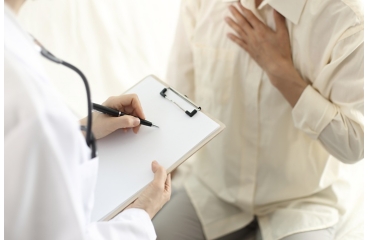
Overview
There are many things that can cause chest pain. Some are not serious and will get better on their own in a few days. But some kinds of chest pain need more testing and treatment. Your doctor may have recommended a follow-up visit in the next few days. If you are not getting better, you may need more tests or treatment.
Even though your doctor has released you, you still need to watch for any problems. The doctor carefully checked you, but sometimes problems can develop later. If you have new symptoms or if your symptoms do not get better, get medical care right away.
If you have worse or different chest pain or pressure that lasts more than 5 minutes or you passed out (lost consciousness), call 911 or seek other emergency help right away.
A medical visit is only one step in your treatment. Even if you feel better, you still need to do what your doctor recommends, such as going to all suggested follow-up appointments and taking medicines exactly as directed. This will help you recover and help prevent future problems.
How can you care for yourself at home?
- Rest until you feel better.
- Take your medicine exactly as prescribed. Call your doctor if you think you are having a problem with your medicine.
- Do not drive after taking a prescription pain medicine.
When should you call for help?
Call 911 if:
- You passed out (lost consciousness).
- You have severe difficulty breathing.
- You have symptoms of a heart attack. These may include:
- Chest pain or pressure, or a strange feeling in your chest.
- Sweating.
- Shortness of breath.
- Nausea or vomiting.
- Pain, pressure, or a strange feeling in your back, neck, jaw, or upper belly or in one or both shoulders or arms.
- Lightheadedness or sudden weakness.
- A fast or irregular heartbeat.
Call your doctor now or seek immediate medical care if:
- You have any trouble breathing.
- You have new or different chest pain.
- You are dizzy or lightheaded, or you feel like you may faint.
Watch closely for changes in your health, and be sure to contact your doctor if you do not get better as expected.
Where can you learn more?
Go to http://www.healthwise.net/patientEd
Enter A120 in the search box to learn more about "Chest Pain: Care Instructions".
Current as of: July 31, 2024
Author: Ignite Healthwise, LLC Staff
Clinical Review Board
All Healthwise education is reviewed by a team that includes physicians, nurses, advanced practitioners, registered dieticians, and other healthcare professionals.

